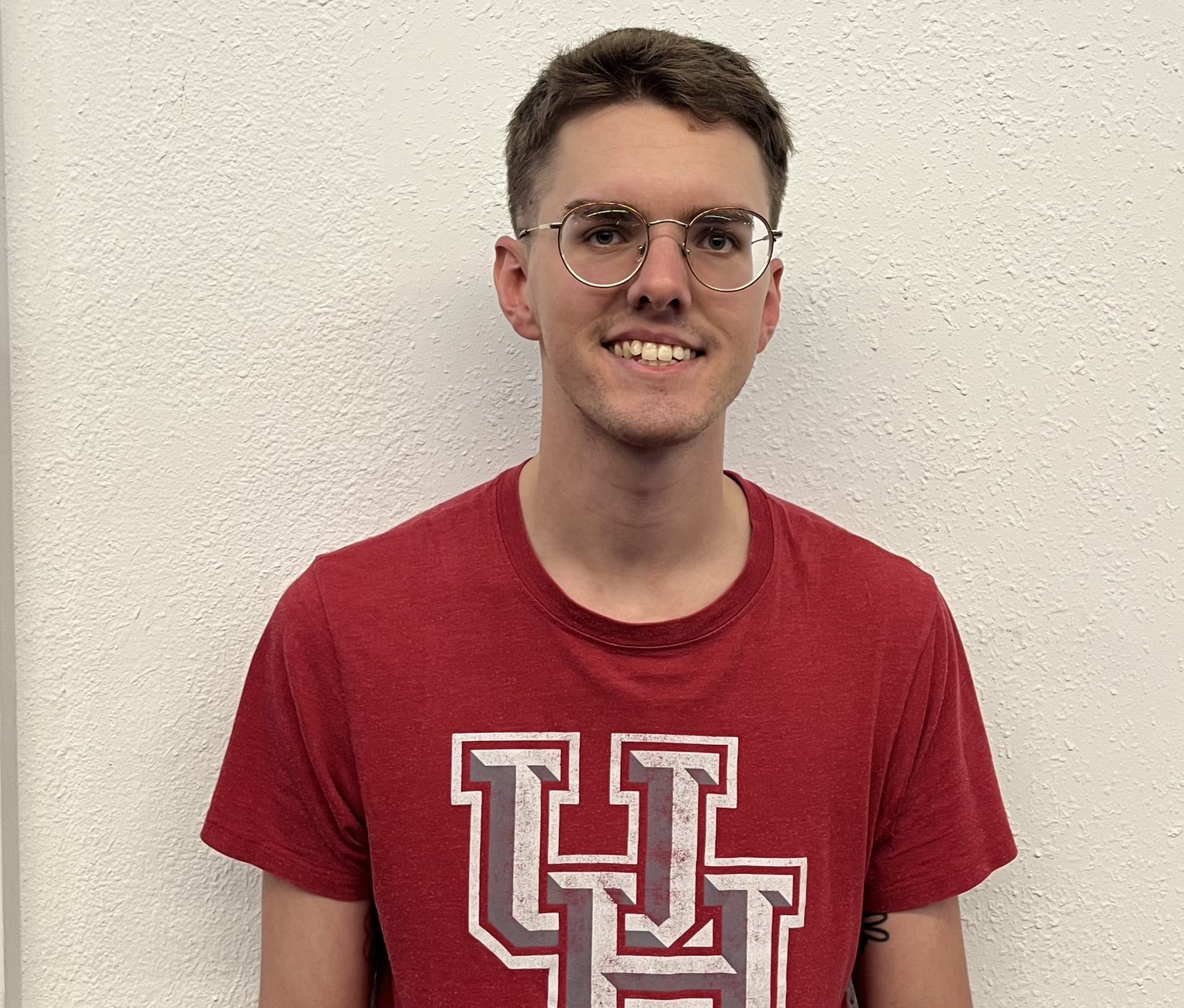This week at Piqosity, we would like you to meet Josh Flynn. Josh is committed to fostering academic excellence by being inquisitive and fun for his students. Discover his unique tutoring style, his approach to personalized sessions, and his passions beyond the classroom.
What subjects and classes do you help our students with?
I am able to tutor for all levels of math but mostly focus on high school and college courses, like BC Calculus or Linear Algebra. For undergraduate students, I help with accounting (financial and managerial), Business Information Systems, Economics (macro and micro), Government, and Logic. I am also able to tutor for standardized exams like the SAT or ACT.
What is your educational background?
I received BBA in accounting and a BS in mathematics from the Honors college at the University of Houston. Currently, I’m a PhD candidate at UH studying pure mathematics.
I spent 2022-2024 working as a math instructor at Mathnasium and currently work as a Teaching Assistant at UH. Here, I have acted as both an instructor and a grader, having experienced multiple facets of tutoring and mentorship. I have also been doing private tutoring since 2018.
What is your favorite subject to tutor?
My favorite subject to tutor is calculus. I find it incredible how effective calculus is at describing and measuring the world around us—from motion and growth to areas under curves. It feels like the culmination of everything in high school math, and I love helping students see how all those earlier topics come together in such a powerful, elegant way.
One of my favorite approaches is using visual proofs and “proofs by picture,” which I’ve come to see as a specialty of mine. I also enjoy bringing technology into sessions, especially using tools like Desmos to program and explore concepts interactively. It opens the door for students to not just solve problems, but really see the underlying ideas come to life.
What makes calculus especially exciting for me is how it brings abstract concepts like infinity into focus in a tangible way. It’s one thing to talk about infinity in theory, but calculus lets us work with it, measure with it, and build entire ideas around it. That kind of conceptual depth is what makes the subject so rewarding to teach.
I love being able to guide students through those “aha” moments when a big idea finally clicks, and they start to see math not just as a subject—but as a powerful language for understanding the world.
What does a typical test prep tutoring session with you look like?
- I start by checking in with the student about any thoughts or takeaways from their recent practice work. This helps set a focus for the day.
- I generally spend most of the session targeting the areas where the student needs the most support—reviewing past mistakes, breaking down tricky concepts, and reinforcing strategies.
- I also make time for lighter practice in the areas where the student already feels confident, to maintain their strengths without overloading them. This balance keeps the sessions focused but varied.
- Before we wrap up, I summarize key points and assign homework tailored to the student’s current goals.
What does a typical subject prep tutoring session with you look like?
- My number one priority in a typical session is making sure the student understands and completes their homework accurately. We’ll usually spend the first part of the session reviewing homework together, focusing not just on right answers but also on clarity of reasoning and method.
- I aim to identify any patterns of misunderstanding and pause for reteaching as needed, walking through similar problems or offering step-by-step support until the student feels confident.
- Once we’ve finished the homework or have covered all of the necessary material, I really enjoy using the remaining time to ask exploratory math questions—ones that go a bit beyond the curriculum but connect to what they’re learning. These are often open-ended or deceptively simple problems that invite students to think critically, explore different approaches, and reflect on the deeper structure of math. This helps deepen their understanding and keeps the sessions engaging, even once the core material is solid.
- Once again, as we wrap up I summarize key points and assign homework.
What’s your typical approach with working on executive functioning with students?
When it comes to working on executive functioning with younger students specifically, my strategy is all about leading by example and fostering a mutual respect. Since I tend to be a bit jittery myself, I’ve found that I can relate well to hyperactive kids and help them focus without feeling like I’m asking them to do something that’s unnatural for them.
I aim to guide them with patience and understanding, rather than giving orders or relying on the typical “because I said so” approach. Instead, I show them how I stay organized, manage my time, and keep focused, so they can see how it works in practice. I believe that by demonstrating these behaviors and explaining them in a way they can understand, they’re more likely to take my advice to heart and adopt some of these strategies themselves.
How do you view your role as a tutor?
I see my role as a tutor as more of a mentor than a traditional teacher. While teaching is definitely a part of what I do—explaining concepts, helping with practice, answering questions—I think the most meaningful part of tutoring is the relationship and example I set.
Since I’m still a student myself, I have the opportunity to model the habits and mindset that lead to academic success in a really relatable way. Whether it’s how I keep my backpack organized, the way I take care of my laptop, or how I write out my homework neatly and clearly, I try to show students what it looks like to take your work seriously and stay on top of things.
I also try to normalize challenges and setbacks, because I’ve faced a lot of the same academic pressures they’re dealing with. That shared experience lets me encourage them not just with strategies, but with empathy. I want them to see that growth and confidence come from consistent effort, and that being a student isn’t about being perfect—it’s about staying curious, asking questions, and taking ownership of your learning.
Tell me about one of your favorite sessions you’ve had.
One of my favorite sessions was with a BC Calculus student during the sequence and series unit. I decided to create a mock exam tailored specifically to the topics we had covered, making it both challenging and engaging. Since the student was quite strong in calculus, I was able to craft a more difficult exam that pushed his problem-solving skills while still being accessible.
After he completed the test, we went through each question together, discussing the reasoning behind his solutions and addressing any areas that needed further clarification. It was incredibly rewarding to see his critical thinking develop as we worked through the problems, and the experience helped both of us gauge his understanding of the material in a deeper, more applied way.
What is your favorite part of being a tutor?
My favorite part of being a tutor is when a student presents a homework question I’ve never seen before. There’s something incredibly rewarding about solving a problem from scratch, especially when it’s a challenge I haven’t encountered yet. It’s a moment of pure excitement for me, as I get to apply everything I’ve learned over the years in real-time.
The joy I get from piecing together a solution on the spot is unmatched. And when students ask, “How did you know how to do that?”—I always reply with a simple, “Practice.” It’s a reminder of the power of consistent effort and how mastering a subject takes both time and experience. It’s moments like these that make tutoring so fulfilling, because I get to share that joy and process with my students.
Outside of tutoring for us, what do you like to do for fun?
Even outside of work, I have a deep passion for mathematics that extends beyond my tutoring sessions. I create math-related content on YouTube, engage with complex problems in my own studies, and frequently find myself reflecting on mathematical concepts.
That said, I do have a well-rounded range of interests! I’m also an avid player of the Pokémon Trading Card Game and have competed successfully in local tournaments. In addition, I enjoy staying active through activities like working out, rock climbing and skateboarding, as well as solving Rubik’s cubes for both fun and the mental challenge.
I also have a pet gecko named Albert, and twice a year, I take the opportunity to travel around Texas and neighboring states to enjoy camping trips, often on spontaneous weekends with friends from college.
If you could have dinner with anyone, who would it be and why?
Assuming there are no language barriers, I would have dinner with Leonhard Euler so that I could pick his brain over number theory for as much time as possible. I’d probably forget to eat as well. Euler is the GOAT mathematician, and I will never change my mind on the matter.
Online Tutoring with Piqosity
Piqosity’s subject and test prep tutors provide the structured support to accommodate your student wherever they need to be. We help our students with a wide range of materials, ranging from 1st through 12th grade subject prep, and standardized exams like the ISEE and SAT. To get the ball rolling, give us a call at +1-888-484-3141 or schedule a free consultation.


